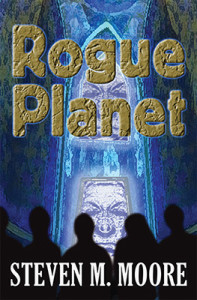Language destruction…
[Note from Steve: If you’re a lover of Bailey’s, Guinness, Jameson, or Irish coffee, like me you have a tradition of participating in a St. Paddy’s Day visit to a favorite pub…or attending a traditional parade. It’s not recommended this year. It might be depressing to stay at home and enjoy your corned beef and cabbage there, along with some of those traditional drinks before, during, and/or after, but it’s the safest choice. Parades are cancelled around here (New York City’s is usually bigger than Dublin). Pubs and restaurants are either closed or with a 50% capacity limit. Follow the rules. Acquiring or passing on COVID-19 on just isn’t worth it. Please take care of yourself, family, friends, and everyone else. There’s always next year…and if COVID-19 is vanquished, there will be more cause for celebration!]
There are little details that annoy me: a weather reporter describing cold weather improvement by “we’re knocking down the feels-like temp” (I’m not complaining about “feels-like,” just that winter temperatures improve by going up); a furniture store touting its “bestest” sale ever; using “it’s” for “its,” or vice versa, in those moving banners on news programs; statements like “me and my partner were just going to WaWa”; and so forth. I call this language destruction.
Language is always changing, of course. Aramaic and Latin aren’t dead, but they’re on life support and used infrequently, so they stagnate, but modern languages evolve, often not for the better as globalization erodes them. It happens to English, which ironically helps destroy other languages. I had a French friend in Colombia who used “le weekend” all the time and insisted that the Brits had stolen it from the French long ago. Huh? Where’s the Academie Francaise when you need them? And German now tends to avoid all those long words where shorter German words are stitched together by just using the shorter English version.
Social media contributes a lot to language destruction. “R U OK?” seems a bit cryptic when someone inquires about your health. A famous Twitter addict and abuser just continues on and on with badly written tweets, but my complaint is more about the contact—lots of people murder Twitter tweets.
Business and science types and Pentagon wonks are like pollinating bees with their plethora of acronyms too, spreading that sickness far beyond their little niches (COVID-19 has taken away a better metaphor). Acronymese could be the worst destroyer of language if it weren’t used all the time for insider code. One serious problem is that the same acronym can mean multiple things when it comes to learning them. And they’re evolving too. APB has been replaced by BOLO—I always thought word was for an Argentine gaucho’s version of a lasso. DWI has been replaced by DUI—the I in the first case means “intoxicated,” specific to liquor originally, while it means “influence” in the second. The first might not be appropriate if the person caught is on meth, while the second covers multiple things, including that, as well as marijuana, which is legal in some states. And it’s probably general enough to describe the guy’s girlfriend on his cellphone saying she’s leaving him too.
“Meth” is slang, of course, and slang is often regional and group specific, but it also often changes the meaning of words, which is more language destruction that drives me nuts. I barely understand what a person means when they say “bad” and “awesome” anymore. I think most people still understand me when I say I was a member of a “nerd herd” in high school, but I’m not certain of that anymore. I think I’m a “cool” guy, and that’s not because I went out to get the paper in PJs when the thermometer says eighteen degrees, but I’m not “bad” or even “awesome” in the sense I mean it.
Writers have to be careful in their stories and blog posts. Old standbys like CMOS (acronym for Chicago Manual of Style) are out-of-date for more than the acronym (CMOS is a low-voltage printed circuit technology). Its rules aren’t as archaic as the Academie Franciase’s, but they’re not up-to-date (I prefer the NY Times Manual of Style, but I let editors have their own way…usually).
The primary criterion is that the majority of readers understand our prose. After all, when human beings are long gone (maybe sooner than later with climate change—there will be survivors from COVID-19), it would be nice if ET archaeologists didn’t need a Rosetta stone. But I doubt that they’d ever figure out what WC meant, even if they took advantage of the facilities.
***

Comments are always welcome.
Rogue Planet. A deposed king’s son must fight to win back his planet from a brutal theocracy. No Game-of-Thrones dragons, just hard sci-fi with Game-of-Thrones action and romance. No magic either, although the theocrats of the planet make the oppressed citizens of the planet believe they possess it. Consider this tale a parable for our times, a warning that what could come to pass if religious fanatics take over. Available in print and ebook (Kindle .mobi) format from Amazon, as well as in all ebook formats from Smashwords and all the latter’s affiliated retailers (iBooks, B&N, Kobo, etc.) and library and lending services (Scribd, Overdrive, Baker & Taylor, Gardners, etc.).
Around the world and to the stars! In libris libertas!
